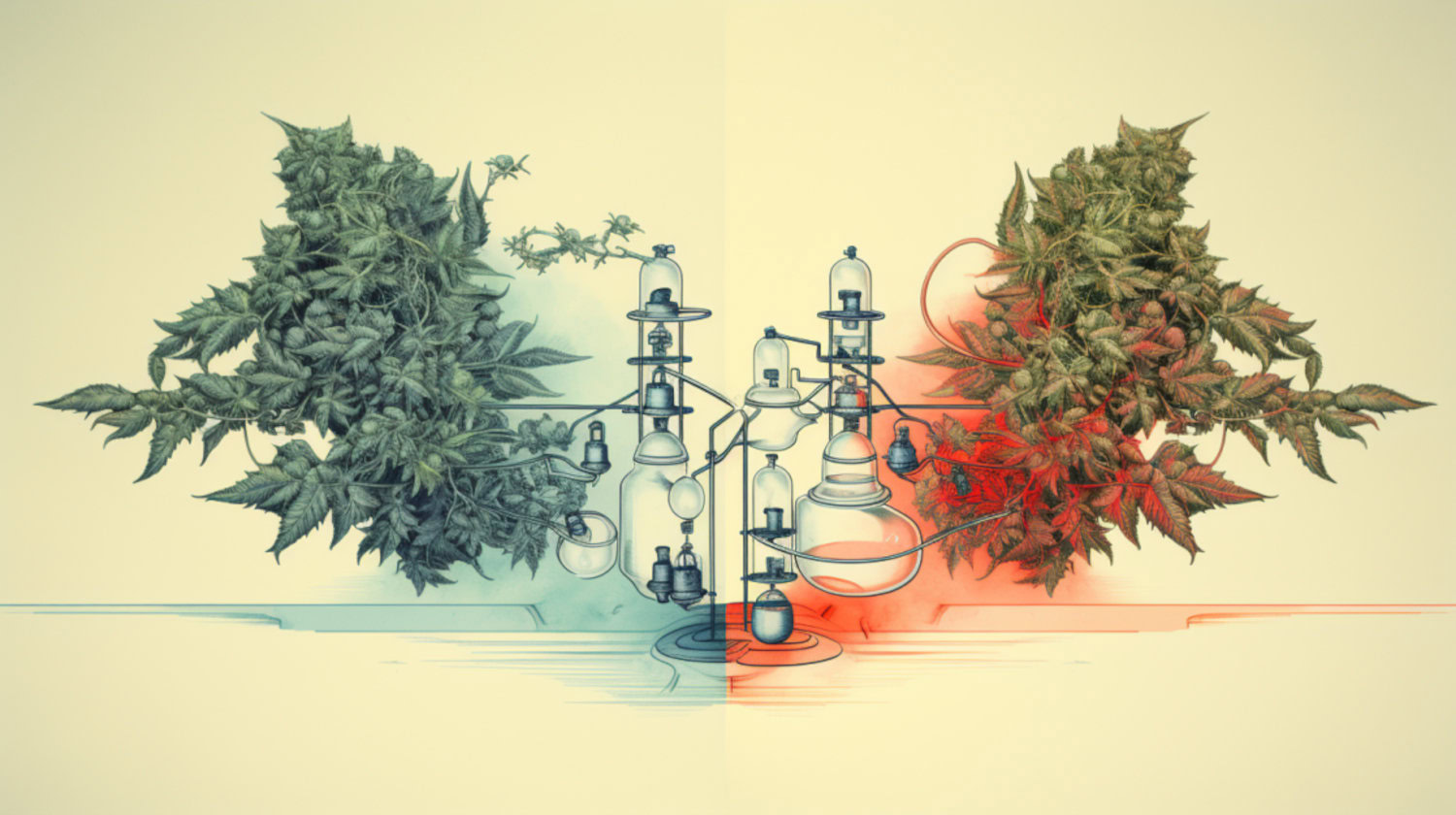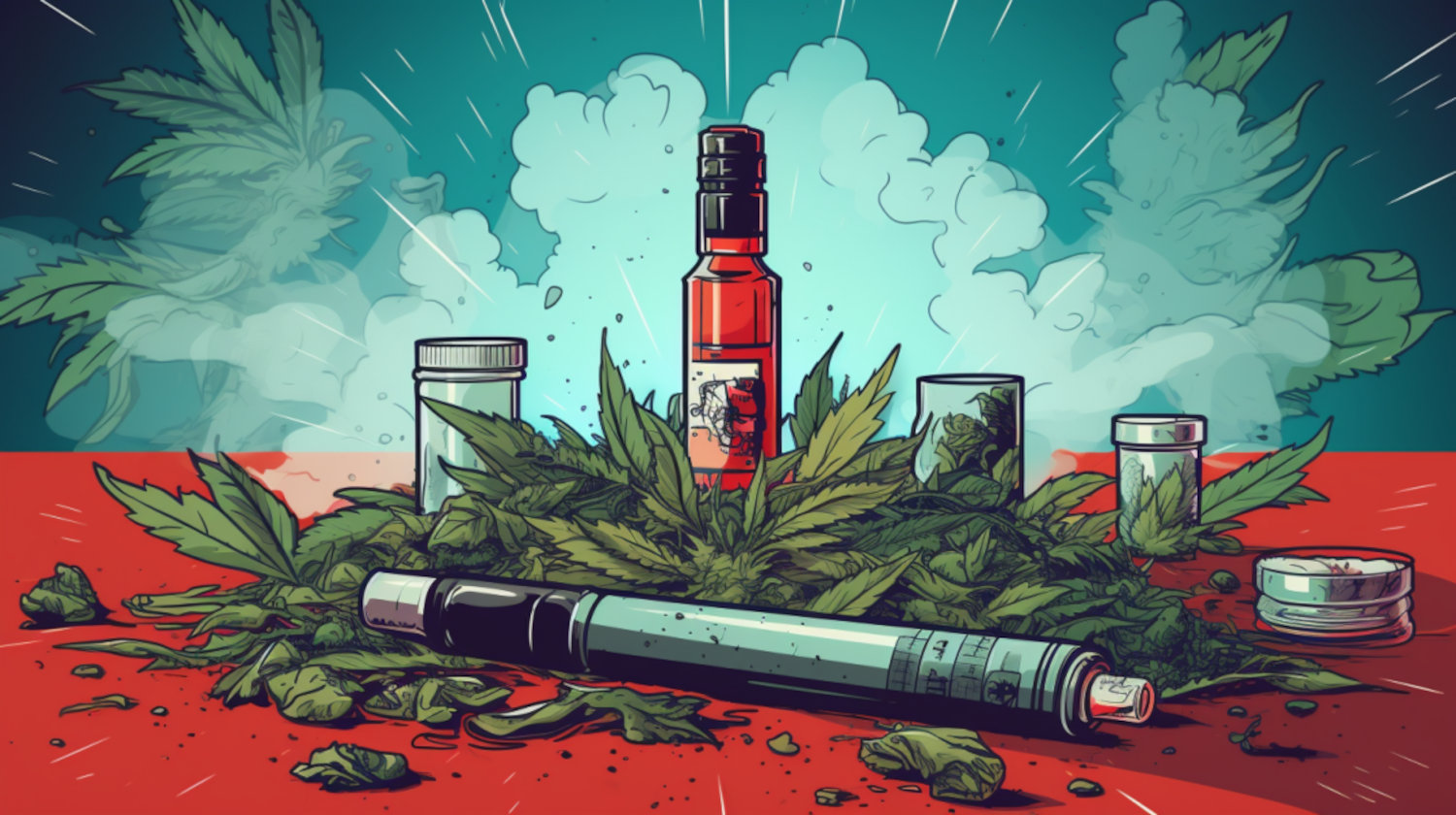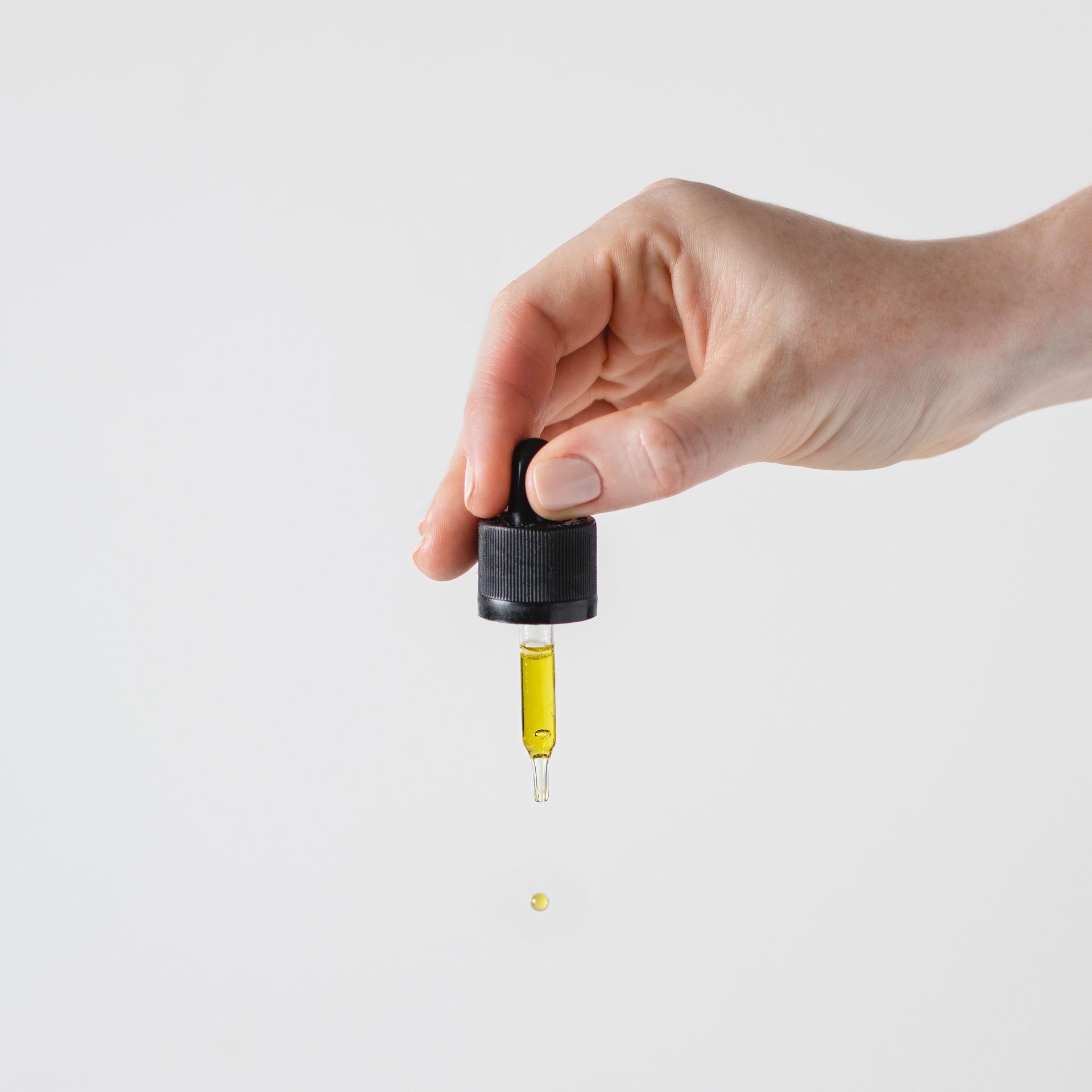The natural world offers a fascinating array of chemical compounds, and the cannabis plant is no exception. It boasts over 100 unique cannabinoids, each with its own unique chemical structure and potential effects on the human body. This has led many cannabis enthusiasts to weigh their options, like comparing THC-O vs delta-8.
In fact, this is where the cannabinoid faceoff between THC-O and delta-8 has garnered attention recently. How do they stack up against each other? Are they truly interchangeable, or do they offer distinct experiences?
What is THC-O?
THC-O, or THC acetate, is a lesser-known cannabinoid that has received attention for its potency and unique effects. While not as widely discussed as its counterparts like delta-9 THC or delta-8 THC, THC-O has emerged as a subject of interest within the cannabis community.
The history of THC-O traces back to its discovery and subsequent synthesis in laboratory settings. Unlike naturally occurring cannabinoids found in the cannabis plant, THC-O is not naturally produced. It is classified as a semi-synthetic compound, meaning it is derived from natural sources but undergoes chemical modification to enhance its properties.1
While there is limited scientific research on THC-O specifically, anecdotal reports suggest that it may have distinct effects compared to other cannabinoids.
Anecdotal evidence and limited studies suggest that THC-O may have a slower onset compared to traditional THC, with effects kicking in approximately 20 to 30 minutes after consumption. The duration of these effects can last anywhere from two to four hours, varying on dosage, individual tolerance, and other factors.
Users often report experiencing a potent intoxicating effect with THC-O, which some claim to be stronger than traditional delta-9 THC or delta-8 THC. However, individual experiences may vary, with some users reporting milder effects or no effects at all.
Despite its potential benefits, THC-O is not without risks. One notable concern is its potential to release toxic gasses when heated at high temperatures. THC-O acetate may break down at temperatures above 340°C (644°F), releasing ketene, a toxic gas that can be lethal in high concentrations. This has raised safety concerns, particularly in the context of vaping or dabbing THC-O products.2
What is Delta-8?

Delta-8-tetrahydrocannabinol (Delta-8 THC) is a cannabinoid compound that has gained attention for its unique properties and potential benefits. While not as widely recognized as delta-9 THC, the primary intoxicating compound found in cannabis, delta-8 THC may offer its own distinct effects and characteristics.
Delta-8 THC was first derived from the cyclization of cannabidiol (CBD) and was discovered to possess notable intoxicating effects in human studies as early as 1942. However, it wasn't until later that its presence in cannabis and cannabis-derived products was realized. By 1966, it was understood that delta-8 THC occurs only in negligible amounts naturally within cannabis and its by-products, such as hash.
Delta-8 THC interacts with the body's endocannabinoid system (ECS) primarily by binding to cannabinoid receptors, specifically CB1 and CB2 receptors. Research suggests that delta-8 THC exhibits similar binding affinity to CB1 receptors as delta-9 THC, albeit with slightly lower potency in some cases.
Delta-8 THC's pharmacological profile is still being explored. There are ongoing efforts to better understand its mechanisms of action and potential therapeutic applications. While research indicates promising therapeutic effects, such as anti-nausea and anti-anxiety properties, further studies are needed to validate these findings and determine the full range of its effects.3
Is THC-O Stronger Than Delta-8?
THC-O and delta-8 THC both produce intoxicating effects, albeit with differences in intensity and duration. Users often report experiencing feelings of euphoria, relaxation, and altered perception after consuming either cannabinoid. However, anecdotal evidence suggests that THC-O may induce stronger intoxicating effects compared to delta-8 THC, with some users reporting a more pronounced high.
Both THC-O and delta-8 THC interact with the body's endocannabinoid system by binding to cannabinoid receptors, primarily CB1 and CB2 receptors. Differences in chemical structures and binding affinities may impact potency and effects. THC-O is reported to be stronger than delta-9 THC, so it is likely to have a higher binding affinity to CB1 receptors than delta-8 THC, contributing to its increased potency.
Anecdotal reports from users also suggest that THC-O produces stronger intoxicating effects compared to delta-8 THC, although clinical studies evaluating its effects in humans are still lacking.
Both THC-O and delta-8 THC may offer potential benefits, such as alleviating nausea, stimulating appetite, and reducing anxiety. However, they also pose risks, particularly when consumed in high doses or in certain forms.
THC-O acetate has also raised safety concerns due to its potential to release toxic gasses when heated at high temperatures.
There have been reports of adverse psychological effects, such as anxiety and panic attacks, that have been associated with THC-O consumption. Delta-8 THC, while generally considered to be less potent than delta-9 THC, still carries risks, including potential impairment of cognitive function and motor skills.4 The lack of federal oversight and standardized testing requirements for cannabis products may further compound these risks, as product quality and labeling accuracy can vary.
THC-O vs Delta-8: Legality and Availability

The legality of THC-O and delta-8 THC varies by jurisdiction. Delta-8 THC is subject to state regulations, with some states explicitly permitting its sale and use, while others have imposed restrictions or bans.
On the other hand, THC-O faces stricter regulation. Unlike delta-8 THC and delta-9 THC, which occur naturally in the hemp plant, THC-O is a synthetic compound. As a result, it falls outside the definition of hemp and is classified as a controlled substance by federal authorities, including the Drug Enforcement Administration (DEA).
The legality of THC-O and delta-8 THC directly influences their accessibility to consumers. In states where delta-8 THC is legal, consumers may find a variety of products containing this cannabinoid, including edibles, tinctures, and vape cartridges, available for purchase from licensed dispensaries or online retailers.
However, the illegality of THC-O poses significant barriers to its accessibility. Limited availability and regulatory restrictions restrict consumer access to THC-O products, making them harder to find compared to delta-8 THC alternatives.
The easier access to delta-8 THC may be considered an advantage for consumers seeking cannabinoid products with potentially milder intoxicating effects. With legal and regulated markets for delta-8 THC established in certain states, consumers have more options for exploring its effects and incorporating it into their wellness routines.
In contrast, the restricted access to THC-O may limit its appeal to consumers despite its reported potency and unique effects. The controlled status of THC-O means that consumers must navigate a complex legal landscape to obtain and use products containing this cannabinoid. This may deter some individuals from pursuing it as an option.
Given the evolving nature of cannabis laws and regulations, always conduct thorough research and consult state laws before purchasing cannabis products. Understanding the legal status of cannabinoids like THC-O and delta-8 THC in their respective jurisdictions can help consumers make informed decisions and avoid potential legal consequences.
What Types of THC-O and Delta-8 Products Are Available?

When it comes to exploring THC-O and delta-8 products, consumers have a variety of options to choose from. However, the availability and types of products may vary depending on factors such as legality, consumer demand, and regulatory oversight.
THC-O Products
THC-O products encompass a range of options, albeit with limitations compared to delta-8 THC offerings. Due to regulatory restrictions and the controlled status of THC-O, the availability of products containing this cannabinoid may be more limited.
Common THC-O products include:
- Concentrates: THC-O concentrates, such as oils, tinctures, and dabs, offer a potent and fast-acting option for consumers seeking the effects of THC-O.
- Edibles: THC-O-infused edibles, such as gummies and candies, provide a discreet and convenient way to consume THC-O. However, the availability of THC-O edibles may be more restricted compared to delta-8 THC alternatives.
- Vape Cartridges: Some manufacturers produce vape cartridges containing THC-O distillate, allowing users to vaporize the cannabinoid for inhalation.
Delta-8 Products
Delta-8 THC products enjoy broader availability and a wider range of options compared to THC-O products. With delta-8 THC derived from hemp and subject to state regulations, consumers can find an array of delta-8 products, including:
- Edibles: Delta-8 THC-infused edibles, such as gummies, chocolates, and baked goods, are popular among consumers for their ease of use and precise dosing.
- Vape Cartridges: Delta-8 THC vape cartridges offer a convenient and discreet method of consumption, allowing users to inhale the cannabinoid vapor.
- Tinctures and Oils: Delta-8 THC tinctures and oils provide a versatile option for consumers looking to customize their dosing and consumption experience.
Consumers should exercise caution when purchasing THC-O and delta-8 THC products, obtaining products from reputable sources that prioritize quality and compliance with state regulations. Lack of federal oversight may lead to inconsistencies in product labeling and testing, underscoring the importance of conducting thorough research and verifying product authenticity before making a purchase.
References
- Holt AK, Poklis JL, Peace MR. ∆8-THC, THC-O Acetates and CBD-di-O Acetate: Emerging Synthetic Cannabinoids Found in Commercially Sold Plant Material and Gummy Edibles. Journal of Analytical Toxicology. 2022;46(8):940-948. doi:10.1093/jat/bkac036 ↩︎
- Kruger DJ, Amila K, Kaplan SM, et al. A Content Analysis of Social Media Discussions on THC-O-Acetate. Cannabis. 2023;6(2):13-21. Published 2023 Jul 5. doi:10.26828/cannabis/2023/000164 ↩︎
- Tagen M, Klumpers LE. Review of delta-8-tetrahydrocannabinol (Δ8 -THC): Comparative pharmacology with Δ9 -THC [published correction appears in Br J Pharmacol. 2023 Jan;180(1):130]. Br J Pharmacol. 2022;179(15):3915-3933. doi:10.1111/bph.15865 ↩︎
- Sugawara N, Yasui-Furukori N, Shimoda K. A case of panic attack developing after THC-O acetate inhalation using an e-cigarette device. Neuropsychopharmacol Rep. 2023;43(4):647-649. doi:10.1002/npr2.12345 ↩︎
The information in this article and any included images or charts are for educational purposes only. This information is neither a substitute for, nor does it replace, professional legal advice or medical advice, diagnosis, or treatment. If you have any concerns or questions about laws, regulations, or your health, you should always consult with an attorney, physician or other licensed professional.




